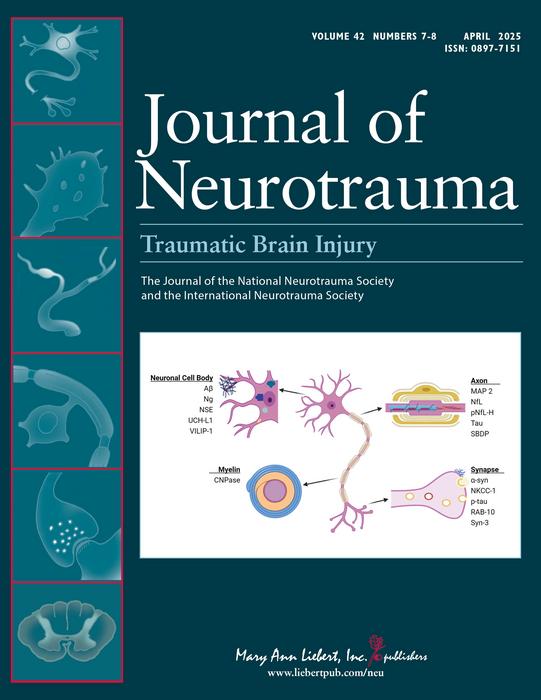A new study published in the Journal of Neurotrauma provides fundamental insights into the assessment of traumatic brain injury (TBI) outcomes, defining a nuanced approach to measuring the impact of both brain injuries and related extracranial injuries. The study focuses on the Glasgow Outcome Scale Extended (GOSE), a pivotal metric used to evaluate recovery following TBI. The research specifically investigates how the incorporation of extracranial injuries alters GOSE scores, thereby influencing the interpretation of patient outcomes after severe trauma.
Glasgow Outcome Scale Extended scores are critical for clinicians and researchers alike, as they provide a quantifiable measure of a patient’s recovery trajectory following neurological trauma. However, discrepancies in scores—particularly when accounting for extracranial injuries—have raised important questions regarding the accuracy of such assessments. The study, led by Dr. Nancy Temkin from the University of Washington, emphasizes the need for clear guidelines on whether to adopt GOSE-All scores, which incorporate extracranial injuries, or GOSE-TBI scores, which are focused strictly on brain injury impacts.
Employing a robust observational design, the researchers analyzed data from patients treated at Level 1 trauma centers across the United States, enrolled in the TRACK-TBI study. This significant patient cohort afforded the researchers a valuable opportunity to compare the outcomes derived from both scoring methodologies across various timelines, specifically at two weeks, three months, six months, and twelve months post-injury. The findings reveal that the discrepancies between GOSE-All and GOSE-TBI figures diminish with increasing TBI severity. Notably, patients with more severe brain injuries exhibited a closer alignment between both scoring paradigms over time.
The implications of these results are profound. The researchers argue that the choice of which GOSE score to use should align with the study’s primary objectives. In instances where researchers aim to evaluate interventions specifically targeting TBI, the GOSE-TBI is presented as a more sensitive tool for assessment. Conversely, for studies aiming to capture a holistic view of patient functionality, including how non-brain injuries might influence recovery outcomes, the GOSE-All approach provides a broader perspective, integrating feedback from both brain and extracranial injury dimensions.
These revelations underscore the complexity of assessing TBI outcomes, where the interplay between different injury types can significantly affect clinical decisions and research findings. The study’s authors assert that understanding these differences will prove vital in designing future clinical trials and optimizing therapeutic strategies. The versatility of the GOSE metric, as this research highlights, can enhance the clarity of outcomes for different research agendas, ensuring that clinicians can tailor their approaches to the specific needs of each patient cohort.
The editorial perspective provided by Dr. David L. Brody, Editor-in-Chief of the Journal of Neurotrauma, emphasizes the need for precision in defining outcome measures. His comments on the practical implications of this research suggest a potential shift in how GOSE—specifically GOSE-TBI—is utilized in clinical settings. By establishing a reliable method for assessing TBI outcomes, future research may benefit significantly, particularly in trials focusing on novel therapeutic interventions aimed at improving brain recovery.
One crucial element of this study is the emphasis on time. As reported, the alignment of GOSE-All and GOSE-TBI scores becomes notably more comparable further along in the recovery path. This time-related variability plays an essential role in how clinicians interpret recovery. Understanding how quickly a patient progresses following a severe injury is pivotal in defining successful treatment pathways and establishing long-term rehabilitation plans.
Additionally, this research brings to light the potential ramifications on broader public health strategies. By refining and better understanding how brain and extracranial injuries impact functional outcomes, healthcare systems can enhance their trauma care protocols, develop targeted preventive measures, and allocate resources based on clearer evidence of patient recovery patterns. This could result in fewer long-term disabilities arising from traumatic injuries, translating into improvements in the quality of life for affected individuals and reduced economic burdens on healthcare providers.
There is a growing consensus among the TBI research community that accurate outcome measures are indispensable. This study’s conclusions may advocate for a shift in study designs that prioritize the establishment of clear operational definitions for assessing TBI levels. The insights gleaned from this research not only inform clinical practices but also impact the way future studies may shape the evolving landscape of TBI treatment—a critical area in both medicine and public health.
Overall, the potential impact of this research transcends academic discourse, reaching into the heart of clinical practice. As healthcare providers grapple with the realities of traumatic brain injuries and their multifaceted consequences, the findings presented in this study can guide better care strategies, ultimately leading to improved patient outcomes and recovery metrics. This advancement in knowledge promises to promote a more profound understanding of brain injuries and their complex interrelations with other types of trauma.
In conclusion, as we further dissect the implications of using GOSE-All versus GOSE-TBI scores, it becomes clear that this nuanced understanding could transform not only clinical assessments but also the future of TBI research. This study acts as a crucial stepping stone towards a more integrated approach to assessing traumatic brain injuries, ensuring that outcomes reflect the complexities of trauma faced by patients on their journey to recovery.
Subject of Research: People
Article Title: Contribution of Extracranial Injuries to GOSE Scores after Traumatic Brain Injury TBI: A TRACK-Traumatic Brain Injury Study
News Publication Date: 9-Apr-2025
Web References: Journal of Neurotrauma
References: Available upon request
Image Credits: Mary Ann Liebert, Inc.
Keywords: Traumatic brain injury, GOSE scores, Extracranial injuries, Clinical outcomes, TBI research.




